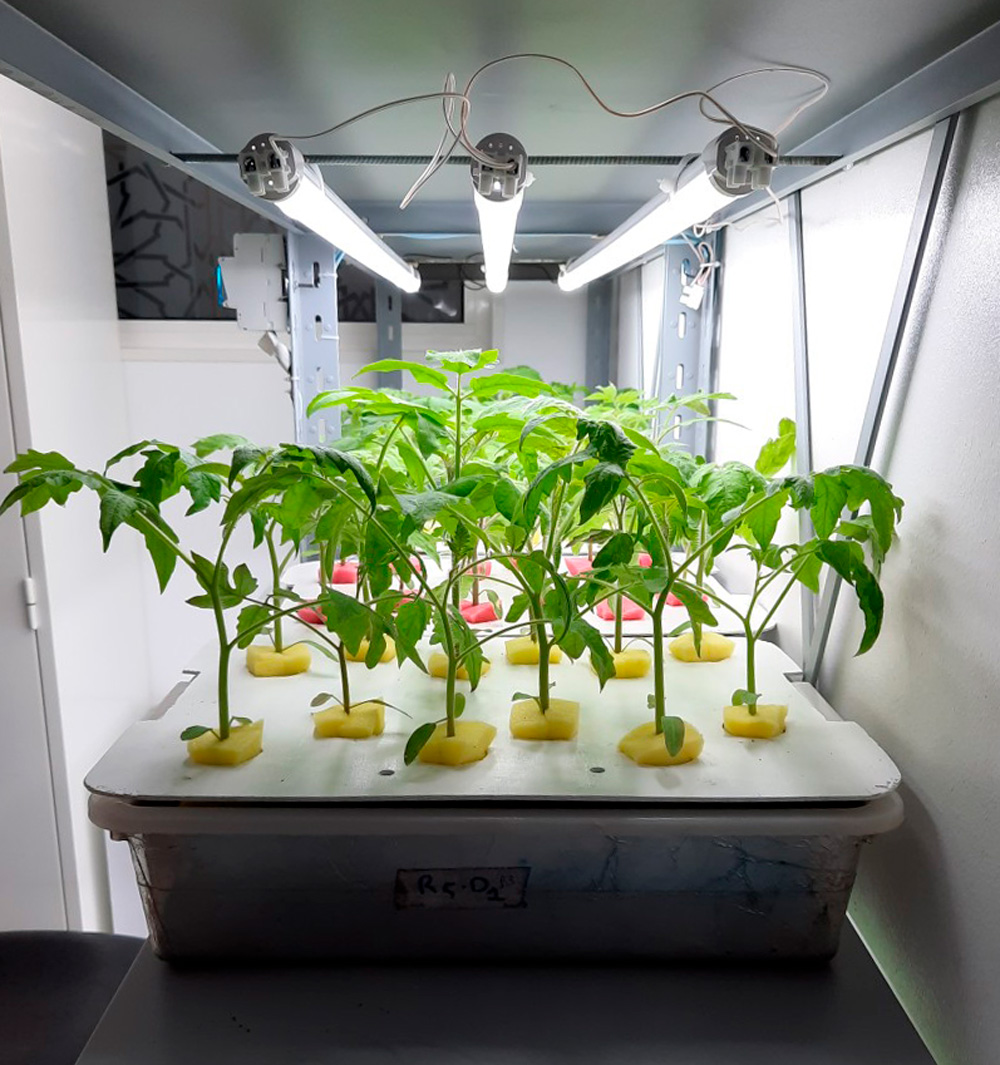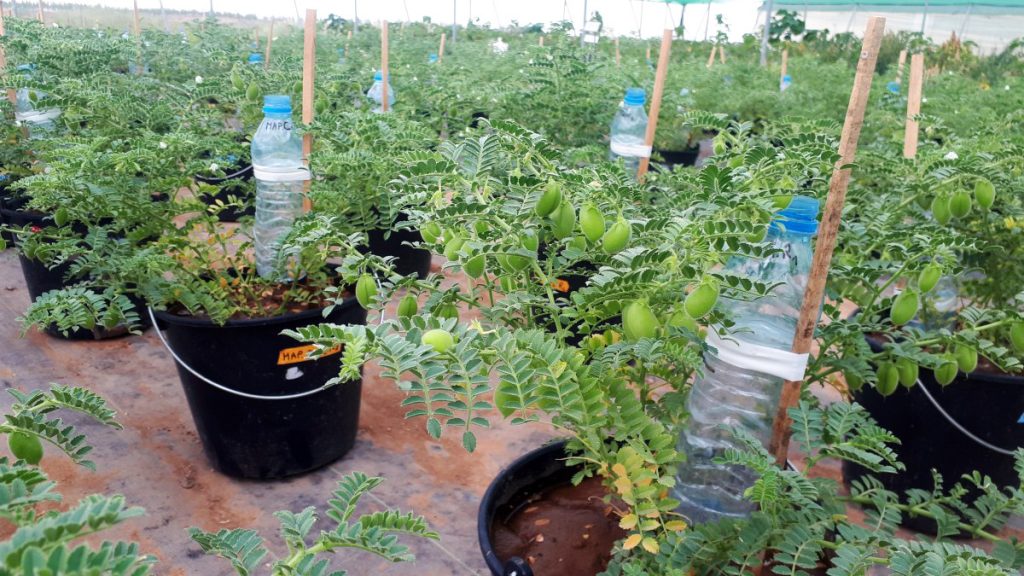Descriptive Summary
The UM6P (Université Mohammed VI Polytechnique) Hydroponic Pilot Project is an innovative agricultural initiative designed to explore and promote hydroponic farming technologies. This project focuses on growing plants without soil, using nutrient-rich water solutions in a controlled environment. The goal of the pilot is to enhance agricultural productivity, especially in regions with limited arable land or water resources, by optimizing water and nutrient usage.
The project seeks to provide sustainable agricultural solutions by reducing water consumption, increasing crop yields, and exploring the potential of hydroponics as a viable alternative for future food security in Morocco and beyond. Additionally, it involves research and development to further refine hydroponic technologies and link indoor hydroponics to electricity produced in agri-photovoltaic systems, making them accessible and scalable for broader agricultural applications.
Background
The UM6P Hydroponics Demonstrator is rooted in the increasing challenge of promoting sustainable agriculture in regions with limited natural resources, particularly water and arable land. With the growing impact of climate change and population growth, many countries seek innovative and climate-smart solutions to ensure food and nutrition security while minimizing resource consumption. Hydroponics farming, which uses nutrient-rich water and/or soil-less substrates, offers a promising alternative for enhancing agricultural productivity while avoiding extreme weather shocks.
Aims and Goals
The UM6P Hydroponic Demonstrator aims to explore and develop efficient, sustainable agricultural methods through hydroponic farming. The primary goals are:
- Enhancing agricultural productivity: By optimizing the use of water and nutrients, the project seeks to increase crop yields, especially in areas with limited access to fertile land or water.
- Promoting sustainability: The project focuses on reducing water consumption and minimizing environmental impact, contributing to more eco-friendly farming practices.
- Advancing research and innovation: Through ongoing research, the project aims to refine hydroponic technologies, link indoor hydroponics to electricity produced in agri-photovoltaic systems, and make them scalable and accessible for broader agricultural applications, particularly in regions facing resource scarcity.
- Ensuring food security: Hydroponics can contribute to long-term food security in Morocco and other regions affected by climate and environmental challenges.
Actions taken
- Development of hydroponic infrastructure: The project has established advanced hydroponic systems and facilities, e.g., an agri-photovoltaic system to allow for controlled environment agriculture, optimizing conditions for plant growth without soil.
- Implementation of pilot tests: A variety of crops have been selected and grown under different hydroponic conditions to assess the efficiency of the system and its adaptability to various plant species and environmental factors.
- Research and innovation: The project involves rigorous data collection and analysis to study water and nutrient use, plant growth rates, and overall system efficiency. This research aims to improve hydroponic methods and make them more sustainable and scalable.
- Collaboration and training: The project engages with local farmers, researchers, and students, providing training on hydroponic farming techniques and encouraging the adoption of innovative agricultural practices.
-
Resource management: The project focuses on optimizing water and nutrient use, significantly reducing the amount of water required for cultivation compared to traditional farming methods, making it particularly valuable in water-scarce regions.

Main Achievement to date
The main goal of the UM6P Hydroponics Demonstrator is to develop and implement sustainable, resource-efficient hydroponic farming techniques that can increase agricultural productivity while minimizing water and land use. By advancing research in this area, the project contributes to food security, particularly in regions facing environmental challenges such as water scarcity and limited arable land, and promotes innovative, eco-friendly agricultural practices for future scalability. Within the Demonstrator, it could be shown, employing a life cycle analysis within a value chain analysis of cherry tomato production, that hydroponics is more environmentally friendly than conventional farming. Furthermore, a capacity building event, open to other partners of FrontAg Nexus, has broadened the knowledge on different technological levels of hydroponics (from lower to high tech levels).

Lessons, replicability and scalability potential
Replicability:
The system is replicable in regions with water scarcity and poor soil, given proper training and investment. Key factors include access to technology, expertise, and financial support.
Scalability Potential:
Hydroponic systems are adaptable for both large-scale commercial use and small, modular setups, making them scalable across different contexts with appropriate resources.












